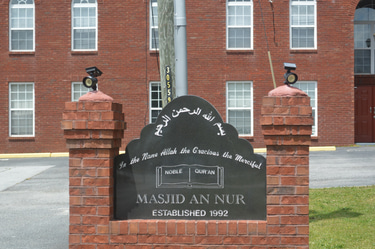Nikkah (Marriage) Service at Masjid An Nur
At Masjid An Nur, we are honored to facilitate and conduct Nikkah (Islamic marriage) ceremonies in accordance with the principles of Islam. Our goal is to ensure that the marriage process is smooth, clear, and aligned with Islamic teachings. Below is a detailed explanation of the steps involved in getting married at our masjid.
Essential Requirements
To ensure the validity of the Nikkah, the following conditions must be met:
Mutual Consent of the Bride and Groom
In Islam, marriage is a sacred contract that requires the free and willing consent of both the bride and groom. There can be no coercion or pressure from either side. The Imam will confirm that both individuals are entering the marriage willingly.
Wali (Guardian) for the Bride
The bride must have a wali (guardian) present during the Nikkah. The wali is typically her father, or if he is unavailable, her closest male guardian such as a brother, uncle, or grandfather. The wali plays an important role in ensuring the marriage is in the best interest of the bride.
Two Muslim Male Witnesses
For the Nikkah to be valid, there must be at least two Muslim male witnesses (or one Muslim male and two Muslim female witnesses). These witnesses must be of sound mind and maturity. They serve to confirm that the marriage contract was conducted properly.
Mahr (Marriage Gift/Dowry)
The mahr is a mandatory gift from the groom to the bride, which is an essential part of the Nikkah contract. The bride and groom must agree on the mahr beforehand. It can be:
• A sum of money
• Jewelry
• Property
• Any valuable or meaningful gift that the bride requests
The mahr is not a price for the bride but rather a token of responsibility and commitment from the groom. It can be given immediately (mu’ajjal) or deferred to a later time (muwajjal), as agreed upon by both parties.
Conducting the Nikkah
Once all requirements are met, the Nikkah ceremony is conducted by the Imam or an authorized officiant at the masjid. The process includes:
Khutbah (Marriage Sermon)
The Imam delivers a short sermon about the significance of marriage in Islam, emphasizing love, mercy, and responsibility between spouses.
Proposal and Acceptance (Ijab & Qabul)
The groom formally offers marriage to the bride, and the bride (through her wali) accepts the proposal in the presence of witnesses.
Declaration of Mahr
The agreed-upon mahr is confirmed and documented.
Dua and Blessings
The Imam makes dua (supplication) for the couple, asking Allah to bless their union.
Legal Documentation
After the Nikkah, the masjid can provide an Islamic Marriage Certificate as proof of the marriage. However, this may not be recognized as a legal document by civil authorities. Therefore, couples are encouraged to register their marriage with local government offices to obtain a legal marriage certificate.
Post-Nikkah Celebrations
While the masjid does not host wedding receptions, couples are welcome to hold a Walimah (marriage banquet), which is a Sunnah encouraged by the Prophet Muhammad (peace be upon him). The walimah is typically hosted by the groom’s family to celebrate the marriage with family and friends.
Additional Marriage Counseling and Guidance
Masjid An Nur is committed to supporting couples beyond the Nikkah ceremony. We offer:
• Pre-marital counseling to help couples prepare for marriage
• Islamic guidance on marital responsibilities
• Conflict resolution support if challenges arise in the marriage
If you have any further questions, please contact our masjid office. We look forward to being part of this blessed occasion and pray for Allah’s blessings on your union.
Scheduling the Nikkah
Couples who wish to have their Nikkah performed at Masjid An Nur can fill out the form below or call to schedule an appointment with our Imam or administration.
© 2025 Masjid An Nur Lithonia
